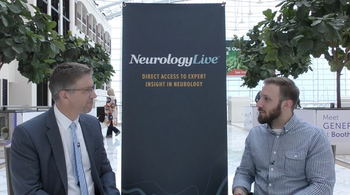
Robert Fox, MD, who presented the DISCO-MS study results at the CMSC 2022 Annual Meeting, offered his closing thoughts on the data and the take-home messaging for clinicians.

Robert Fox, MD, who presented the DISCO-MS study results at the CMSC 2022 Annual Meeting, offered his closing thoughts on the data and the take-home messaging for clinicians.
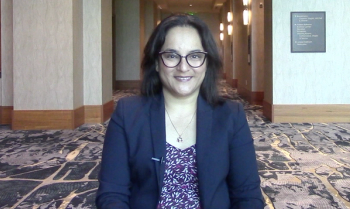
The associate professor of psychiatry at the University of Illinois at Chicago shared the findings of her and colleagues’ work that suggest that distinct cytoarchitectural changes occur in the brain that may underlie migraine chronification. [WATCH TIME: 4 minutes]

Data from a cohort of almost 5000 women seen at Montefiore Health System emergency departments suggest that primary headache, likely migraine, is underdiagnosed, and a high proportion of these women being of Black and Hispanic backgrounds.
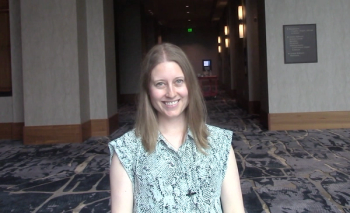
The pediatric neurologist and headache specialist at the University of Calgary discussed the work she presented at AHS 2022 on the incidence of anxiety and depressive disorders in the pediatric migraine population. [WATCH TIME: 6 minutes]

Data from a study in Olmsted County, Minnesota, identified the incidence rate of status migrainosus to be 26.60 per 100,000, with more than 10% of the cohort reporting that too much or too little sleep triggered the condition.

Robert Fox, MD, offered perspective on data from the DISCO-MS study of disease-modifying therapy discontinuation in patients with multiple sclerosis and how it compares with day-to-day clinical practice.
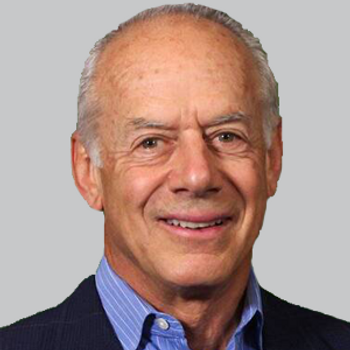
The percent change in monthly migraine days across weeks 1 to 12 and scores on Headache Impact Test were precursors to suboptimal response to eptinezumab, prompting the need for a second dose.
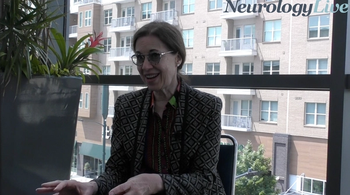
The professor and chair of Psychiatry & Human Behavior at Wake Forest School of Medicine provided insight on the signs and risks associated with sleep disorders and Alzheimer disease. [WATCH TIME: 3 minutes]

At 2- and 4-hours post dose, return to normal function was achieved by 30.1% and 52.1% of participants for their first 10 ubrogepant-treated attacks.

Headache frequency remained the top driver of higher disability scores, but opposing to prior findings, school versus summer was not a significant predictor of disability, suggesting that pandemic schooling changes affected coping abilities to cause less disability.

Robert Fox, MD, shared the details of the DISCO-MS study of disease-modifying therapy discontinuation in patients with multiple sclerosis, presented at the CMSC 2022 Annual Meeting.
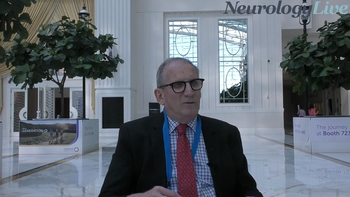
The president and chief executive officer of Mapi Pharma discussed the differences and additional benefits from glatiramer acetate depot, a new intramuscular extended-release version of the known multiple sclerosis medication. [WATCH TIME: 4 minutes]
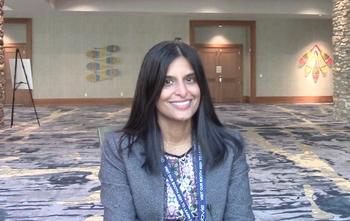
The associate professor of neurology at Mayo Clinic and member of the board of directors at AHS shared her perspective on the importance of collecting more information on status migrainosus and the need to develop a better approach and definition. [WATCH TIME: 3 minutes]

The director of the Montefiore Headache Center spoke about the Migraine Clinical Outcome Assessment System project and the need for better patient-reported outcome measures in migraine clinical care.
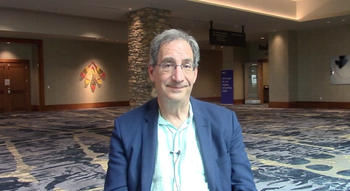
The Michael Hooker Distinguished Professor and director of the NIMH psychoactive drug screening program at University of North Carolina School of Medicine discussed the need for large placebo-controlled trials of psychedelics in migraine disorders. [WATCH TIME: 4 minutes]

Patients in the open-label extension also showed limited need for acute treatment with rimegepant (Nurtec ODT; Biohaven Pharmaceuticals), as more than 80% of patients took 16 or fewer total tablets over the 28-day period.
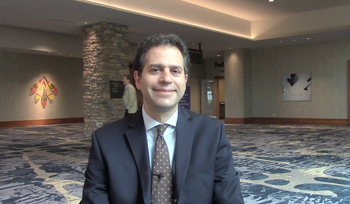
The neurologist at Weill Cornell Medicine and NewYork-Presbyterian Hospital offered his insight into the hot topics at the American Headache Society Annual Scientific Meeting, including a presentation on the prevalence of status migrainosus. [WATCH TIME: 4 minutes]

A retrospective review of more than 1000 electronic medical records suggests that for those with migraine, the presence of neck pain, anxiety, depression, and insomnia show no comparative differences in treatment response predictability.

The Michael Hooker Distinguished Professor and director of the NIMH psychoactive drug screening program at University of North Carolina School of Medicine shared his insight into his keynote address at the American Headache Society Annual Scientific Meeting. [WATCH TIME: 8 minutes]
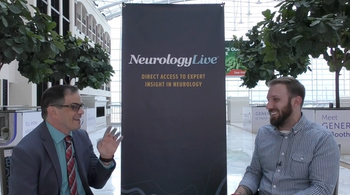
Daniel Kantor, MD, discussed the data from his presentation at the 2022 CMSC annual meeting on COVID-19 vaccine response in patients with multiple sclerosis, and what questions are still lingering among the clinical community.
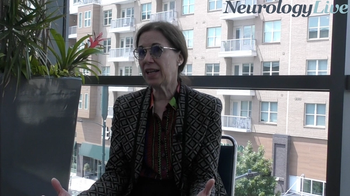
The professor and chair of Psychiatry & Human Behavior at Wake Forest School of Medicine discussed the need for improved tools to evaluate and treat sleep disorders in patients with Alzheimer disease. [WATCH TIME: 3 minutes]

The associate clinical professor at the University of South Carolina School of Medicine discussed how JZP-258’s clinical profile has expanded since its original approval for narcolepsy, and whether it makes sense for all patients to consider. [WATCH TIME: 3 minutes]

Compared with normal sleepers, those with poor sleep and insomnia showed a significant association with lower flow-mediated disease levels, the most common method to describe endothelial dysfunction.

Daniel Kantor, MD, discussed his presentation at the 2022 CMSC annual meeting on COVID-19 vaccine response in patients with multiple sclerosis who are being treated with sphingosine 1 phosphate receptor modulators.

The associate clinical professor at the University of South Carolina School of Medicine provided context on 2 analyses presented at SLEEP 2022 that highlighted JZP-258’s impact in patients with idiopathic hypersomnia. [WATCH TIME: 2 minutes]
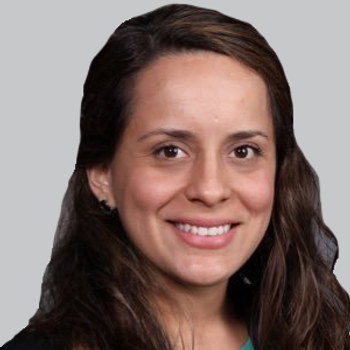
Patients with moderate-severe compared with normal-to-mild sleep disturbances had worse GAD-2 questionnaire scores, PHQ-2 scores, and PROMIS fatigue scores with no difference in age, sex, or hospitalization due to COVID-19.

The graduate student at the University of Michigan provided insight on her study examining longitudinal patterns of difficulty initiating sleep and their associations with subsequent memory trajectories among different races and genders. [WATCH TIME: 3 minutes]

The head of the MS Center at the University of Basel discussed an analysis presented at CMSC’s Annual Meeting, focusing on the effects of BTK inhibitor evobrutinib on neurofilament light levels.
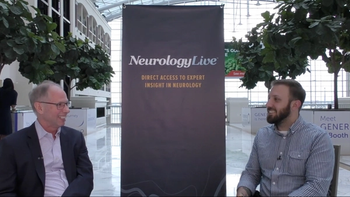
Jeffrey Cohen, MD, spoke about the topic of his CMSC Presidential Lecture at the 2022 annual meeting, stem cell transplantation in multiple sclerosis, and what questions remain unanswered in this realm of treatment.

After 30 days of the PennPALS system, 70.8% of the remaining 24 patients were adherent to treatment or were using their PAP machine for at least 4 hours/night on average over the last 7 days.